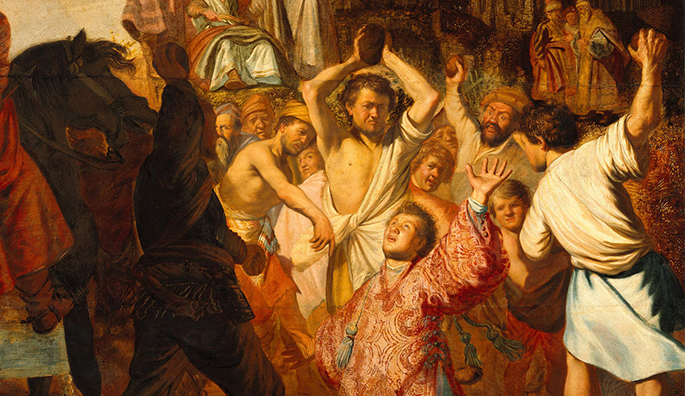
The Rehabilitation of Mercy
Judge Frank Caprio is the principle on the syndicated show, “Caught in Providence” that shows up on Facebook’s Watchlist.
He sits in judgment on minor infractions, usually traffic cases, and treats defendants with extraordinary respect, compassion and humor. According to the show’s web site, the cases and defendants are real.
I’m sure critics would say Caprio is a “soft touch,” or that he isn’t firm enough with defendants. But some religious people would use the term “mercy” to describe many of his decisions and would say he’s an expert at tempering justice with mercy.
Mercy is one of those “churchy” words that is seldom used in everyday language. Except as a joke, employees don’t say to their bosses, “Do I have to do that? Have mercy!” Or seldom does a husband say to his wife, “You want to talk about that again? How about a little mercy?”
Helps Us Understand God
But the word and its meaning have found new life, and with reason. It helps us understand God and the idea of being Godlike. Pope Francis published a book in 2016 called, “The Name of God is Mercy.”
I recently listened to a podcast of a speech by Walter Kasper, a German theologian and cardinal. He is known for promoting relations with people of other faiths, especially Jews and Lutherans.
Kasper acknowledges that the word “mercy” is “out-of-fashion” and that much of human history, including the behavior of Nazis and others in World War II, shows “an absolute absence of mercy.” Contemporary absence of mercy is shown in how we treat refugees, he says, and I would add, how we treat people who are not like us. We are often more interested in seeing that others receive “justice,” which is often simply vindictiveness.
But the importance of mercy, and the acknowledgement that “justice is not enough,” is present in all the world’s religions, Kasper says. It is central to the Hebrew and Christian Bibles and is “at the center of Jesus’ message.”
A God Who Has Heart
“God reveals himself as a God of mercy,” Kasper says, “a God who has a heart.” He is “a God who is not obliged by our rules of justice.”
It brings to mind the famous excerpt from the prophet Isaiah: “For my thoughts are not your thoughts, neither are your ways my ways, says the Lord.”
I’ve often written in these blogs that I believe that skeptical people searching for God should not only study and pray to receive the gift of faith, they should try to be Godlike, which opens the door to faith. And mercy is the principal attribute of God.
So what does “every-day” mercy look like? Vinita Hampton Wright, in an essay in the National Catholic Reporter, imagines Mercy as a human being.
“Mercy makes a habit of giving others the benefit of the doubt. Mercy is not in the habit of sending deadly glares at people who are annoying. Mercy gives charitably, knowing that eventually someone will take advantage of his generosity. Mercy welcomes you, fully aware that this act may disrupt her own plans.
Help Others Succeed
“Mercy relinquishes control when doing so allows another person to grow and learn. Mercy makes it his business to help others succeed. Mercy clears the way for others, so that they can walk on an even path, no matter how halting their steps or injured their souls.
“In all these situations, mercy treats power as a sacred trust. I can be merciful because I have some sort of power, the means to affect another’s life, if only for a moment. I act mercifully when I use my power to do kindness in this world.”
That’s what God does, and that’s what we must do to find God.






